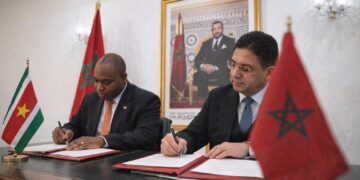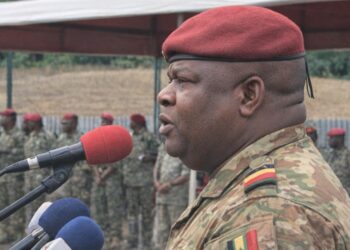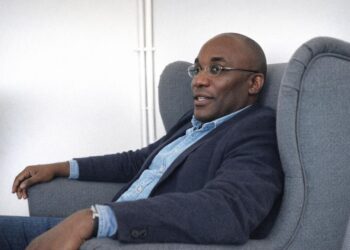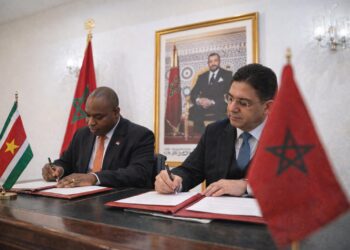Presidential Stewardship and Diplomatic Optics
The Council of Ministers of 23 July 2025 unfolded beneath the chandeliers of the Palais du Peuple and under the measured authority of President Denis Sassou Nguesso, a setting carefully curated to reassure domestic constituencies and external partners alike. Diplomats in Brazzaville underscore that such gatherings have become a barometer of institutional continuity since the Covid-19 hiatus, signalling that policy is once again being shaped in regular cadence rather than emergency mode. The two-hour-and-forty-five-minute session reflected an agenda that fused regulatory detail with macro-economic strategy, a juxtaposition designed to convey both technocratic competence and strategic vision.
Environmental Impact Decree Fortifies Green Credentials
Environment Minister Arlette Soudan-Nonault tabled a decree redefining environmental and social impact assessments, replacing the 2009 framework and aligning Congo with the 2023 Sustainable Environment Act. In diplomatic circles this move is viewed as more than administrative housekeeping; it places Brazzaville in closer step with the EU’s Global Gateway and the African Development Bank’s climate screen, prerequisites for concessional green finance. By offering clearer guidelines for project promoters and auditors, the decree addresses long-standing complaints by investors regarding procedural opacity, yet it simultaneously reinforces state oversight to protect riverine communities across the Congo Basin, a region already identified as a vital carbon sink (World Bank 2024).
Postal Code Reform as Digital Infrastructure
Minister Léon Juste Ibombo’s presentation on national postal codification appeared mundane at first glance, yet the reform carries strategic overtones. A robust addressing system is foundational for e-commerce logistics and financial inclusion, both earmarked by the Universal Postal Union as catalysts of intra-African trade under the AfCFTA framework (UPU 2023). By marrying geocoded zones with digital platforms, Brazzaville aims to reduce last-mile delivery costs and integrate outlying departments—often deprived of reliable banking points—into the formal economy. Development partners note that this low-visibility decision could quietly unlock value chains in agriculture and artisanal production that still suffer from high transaction friction.
Fiscal Dashboard: From Headwinds to Targeted Prudence
Finance Minister Christian Yoka provided a granular account of revenue collection and expenditure through March 2025, highlighting a fiscal gap of CFA 14.7 billion at end-2024, yet also an improved primary surplus by first-quarter 2025. The figures are less alarming than the headline suggests when read alongside Standard & Poor’s recent affirmation, which rewarded what it termed “prudent consolidation”. External advisers consider the cabinet’s medium-term budget framework for 2026-2028—anchoring real growth at 3.1 percent and targeting debt-to-GDP below 85 percent—credible if oil prices hold near the projected USD 61-63 range and non-oil revenue mobilisation succeeds. The emphasis on digital tax collection and streamlined exemptions echoes IMF Article IV recommendations from 2023, though the political economy of subsidy rationalisation will test administrative resolve.
Aviation and Health: Soft-Power Gateways
Transport Minister Ingrid Olga Ebouka-Babackas briefed the cabinet on preparations for the October 2025 ICAO audit of civil-aviation safety. Success would position Maya-Maya and Pointe-Noire as competitive transit hubs just as regional carriers recalibrate routes in the post-pandemic market. Aviation analysts recall that Congo’s last audit in 2008 exposed deficiencies now largely rectified, yet runway maintenance and incident-reporting protocols will face fresh scrutiny (ICAO 2023).
Health Minister Jean Rosaire Ibara outlined a containment plan for diarrhoeal outbreaks in Brazzaville and Mossaka-Loukoléla, contextualising the episodes within a regional surge of cholera in neighbouring states (WHO 2025). The authorised CFA 248 million emergency fund, modest in absolute terms, underscores the administration’s intent to demonstrate early-warning capability, a reputational asset in a continent where epidemic management often influences investment perceptions.
Strategic Appointments and Governance Continuity
The cabinet concluded with appointments in media printing and tourism promotion, placing trusted technocrats and emerging political figures in posts that bridge state communication and economic diversification. Observers note that naming Nestor Oyoukou to the National Printing Office consolidates government grip on public information streams ahead of the 2026 legislative planning cycle, while elevating Antoinette Ashley Nguesso Ambendet to the Tourism Promotion Board dovetails with plans to brand the north-central corridor as an eco-safari cluster. Such personnel choices, while routine, reveal a calibrated mix of expertise and political balance intended to sustain administrative momentum without unsettling factional equilibrium.
Calculated Equilibrium as International Signal
Across environment, digital infrastructure, fiscal governance, transport safety and public health, the 23 July cabinet meeting projected a narrative of calculated equilibrium. For foreign missions in Brazzaville the message was unambiguous: the Republic of Congo is intent on modernising its regulatory architecture while preserving macro-fiscal caution, thereby courting green and blue economy investment without sacrificing debt sustainability. Whether the targets materialise will depend on external commodity cycles and the pace of domestic administrative reform, yet the diplomatic community will read the session as a reaffirmation of continuity—an attribute often prized as much as growth itself in a volatile global landscape.












































